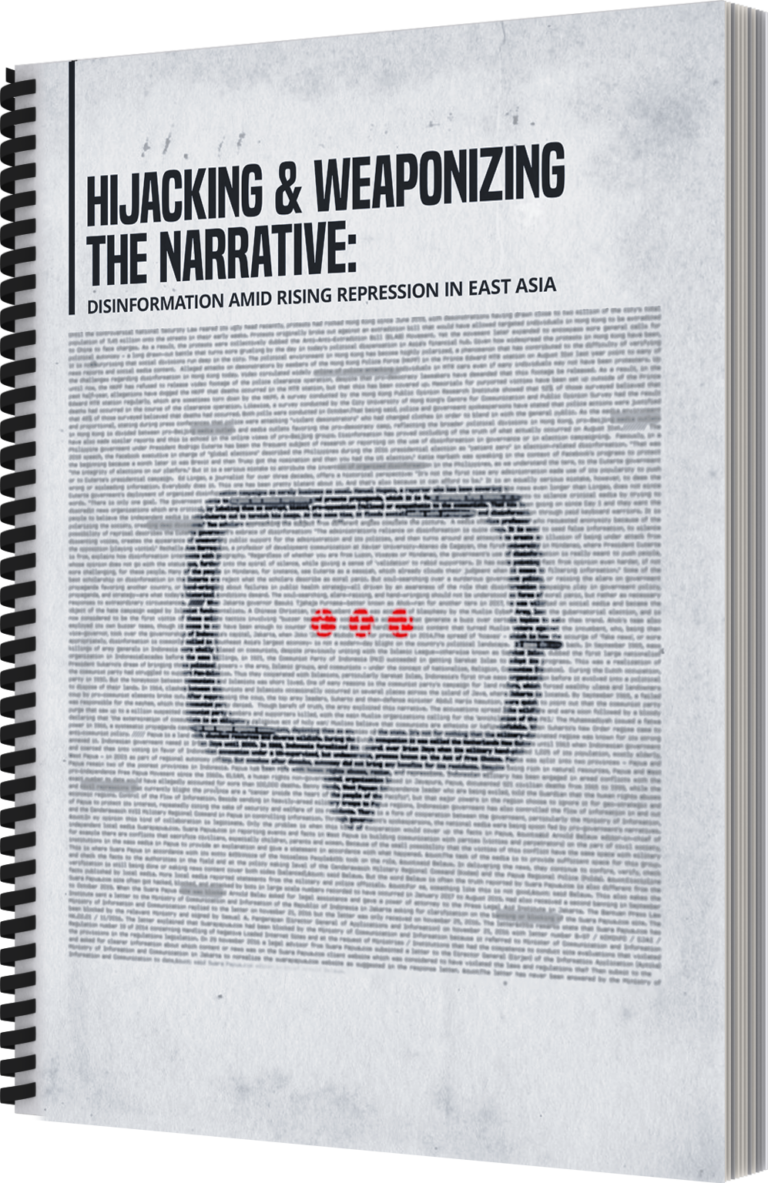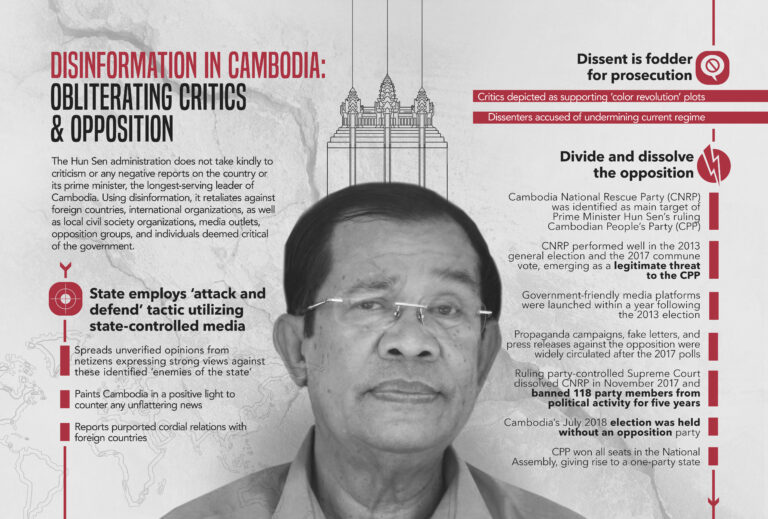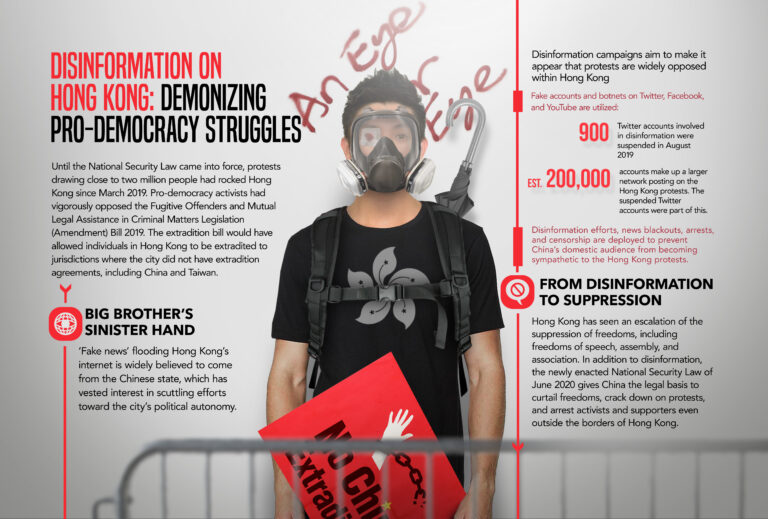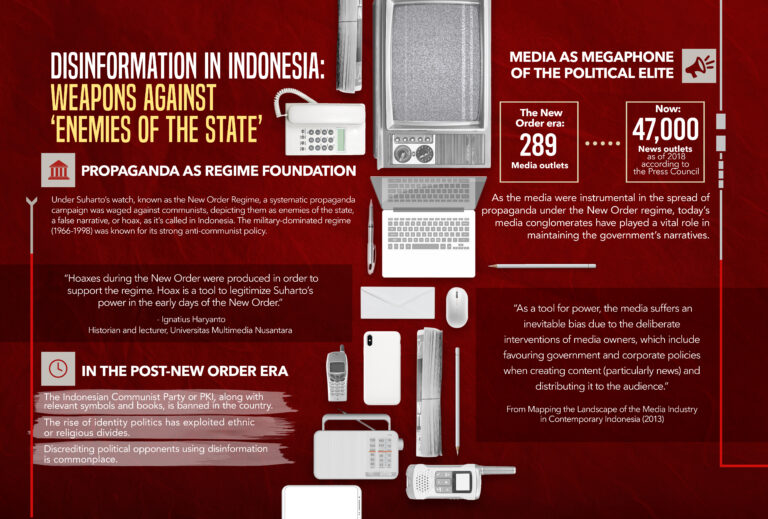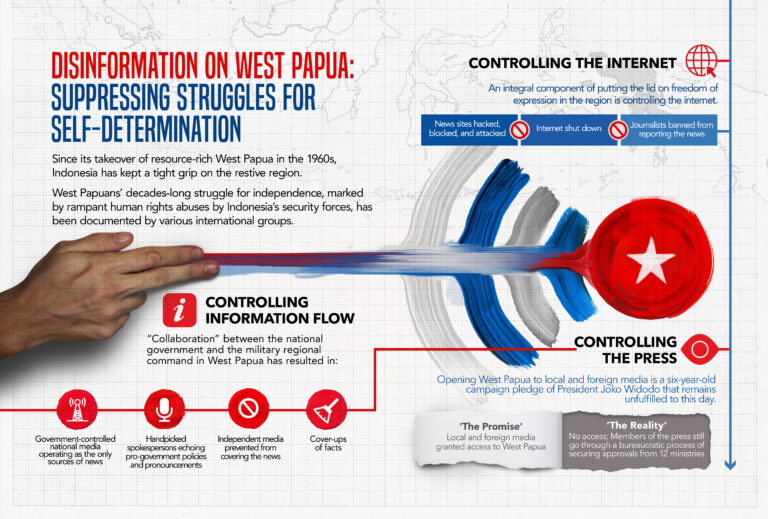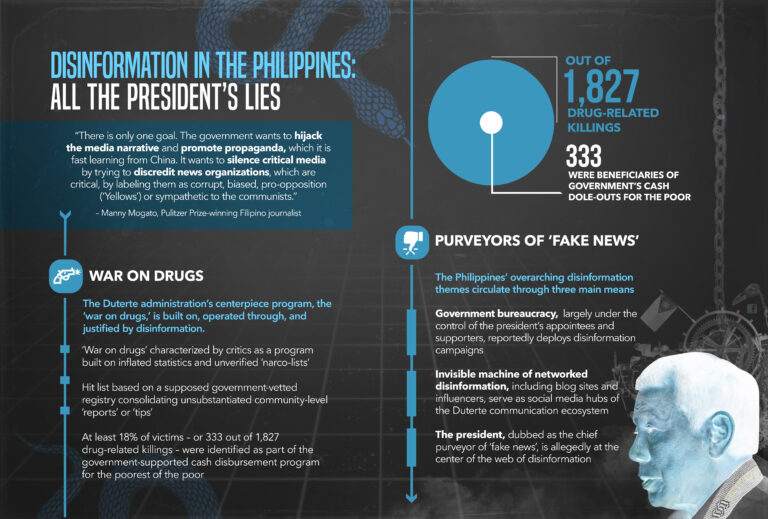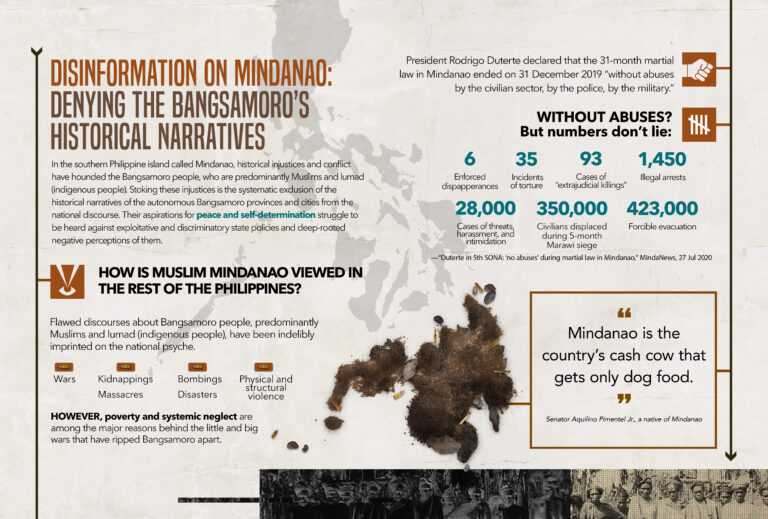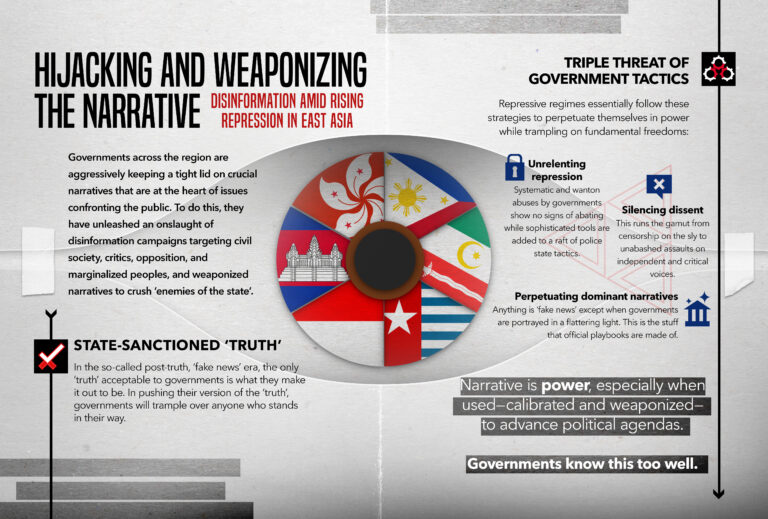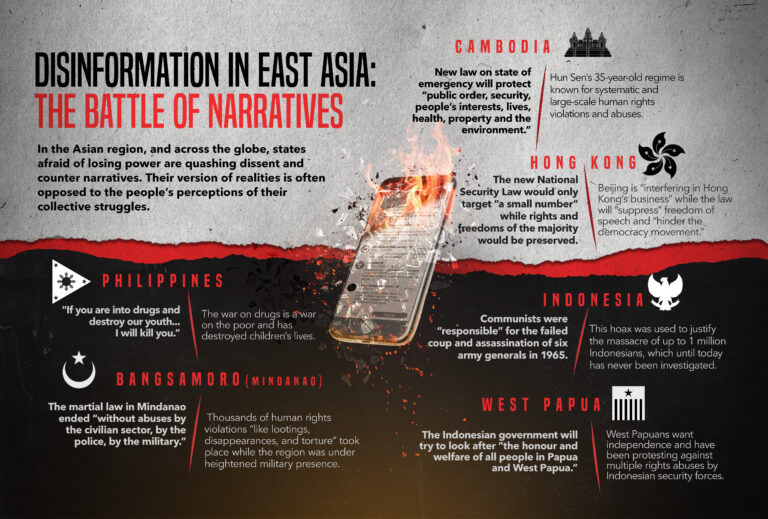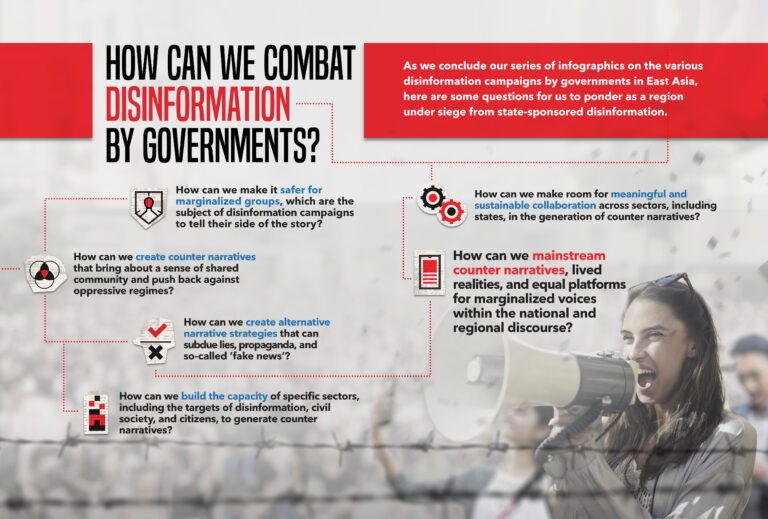Those who have the least power, members of excluded groups, are often the victims. Civil society is targeted because it works to defend rights, advocate for social, political, and economic change and hold those in power to account. Disinformation threatens to deny civil society its voice and misrepresent what civil society stands for.
FOREWORD: FIGHTING BACK AGAINST DISINFORMATION
by CIVICUS
CIVIL SOCIETY KNOWS only too well the power of disinformation. It is increasingly deployed as one of the tools to attack civil society. States, rogue politicians and anti-rights groups, often working in concert, deliberately sow disinformation to further their political agendas and tarnish those seen as standing in their way.
The COVID-19 pandemic offered further evidence of the ways in which disinformation can skew public discourse and directly cause harm to people’s lives: in the pandemic, disinformation had the power to persuade people not to take potentially life-saving measures and endanger not only their own lives but those of others.
There is little that is accidental about disinformation. Powerful political forces use disinformation as a key instrument of repression, twisting and bending public narratives, and undermining and attacking opposing viewpoints. Disinformation often forms part of a suite of measures that seek to channel and control the power of the internet and social media, allied with censorship, shutdowns, online surveillance and the deployment of armies of paid trolls to propagate hate speech and attack people exercising their freedom of expression.
Those who have the least power, members of excluded groups, are often the victims. Civil society is targeted because it works to defend rights, advocate for social, political, and economic change and hold those in power to account. Disinformation threatens to deny civil society its voice and misrepresent what civil society stands for.
STATE OFFENSIVE IN THE DIGITAL ERA
Across Asia, the focus of this research, governments and political and economic elites are using disinformation to their benefit.
Among many other examples in the Philippines, cyber-troll armies known as ‘call centre hubs’, linked to supporters of President Rodrigo Duterte,disseminate false and malicious content, including misleading memes, and conduct targeted harassment campaigns. Duterte supporters use call centre hubs to smear and boycott media networks that have been critical of the government’s human rights violations.
In Vietnam, following a protest against land grabbing that turned violent, Vietnam’s cyber-army, known as Force 47, was deployed to counter social media comments that criticised the way the authorities handled the situation. Force 47 responded by flooding social media with forced confessions in which people said they had made petrol bombs and other weapons in order to attack the police.
As part of China’s repression of Hong Kong’s democracy movement, pro-Beijing media outlets uncritically echo and boost state policies and dispense state propaganda while simultaneously denying any space for dissenting voices. Similarly, in West Papua, people’s long struggle for independence from Indonesia is systematically thwarted not only through the state’s use of brute force but also through the regime’s unrelenting attempts to propagate a dominant narrative that serves its continuing rule. Online manipulation of opinion and targeted, well-funded cyber attacks against civil society and independent media are routinely deployed.
CIVIL SOCIETY IN THE CROSSHAIRS
Civil society is a target of disinformation, and civil society must be part of the solution. Clearly, in many countries ruling interests have no interest in tackling a problem that works in their favour. Civil society has long wrestled with the challenge of how to combat disinformation.
Civil society is a target of disinformation, and civil society must be part of the solution. Clearly, in many countries ruling interests have no interest in tackling a problem that works in their favour. |
As part of any response there is a need to rebut mistruth and check facts, and expose the machinery and economy of disinformation. There is also a need to promote counter-narratives that are grounded in truth and respect for rights. Counter-narratives need to give space for those attacked and excluded to tell their own stories and foster understanding of their realities. This calls for collaborative and inclusive approaches that bring together a range of different civic groups and voices.
None of this is easy, and there is an urgent need to share and learn from examples of what works. Case studies of innovative and successful stories of civil society initiatives to combat disinformation have the power to inspire us. We can learn from them and adapt them to our own circumstances.
LEARNING FROM ASIA
This new research seeks to encourage just that. The learning comes from Asia, but has lessons for civil society across the world. Case studies from Cambodia, Hong Kong, the Philippines and Indonesia, Mindanao and West Papua provide fresh insights into disinformation and strategies to counter it.
Alongside this, artists were tasked with responding to disinformation, and this research shows the fruits of their initiatives in engaging with the public in fresh and creative ways, highlighting the innovative strategies, new alliances, and out-of-the-box thinking required of civil society in fighting disinformation and promoting counter-narratives.
Research was conducted in the first year of the COVID-19 pandemic, and the lessons and insights it holds remain applicable today as societies still struggle with the pandemic and its impacts. The problems of disinformation and broader attacks on civic space only intensified during the pandemic. Any hopes of rebuilding our societies to be better following the pandemic must get to grips with this problem.
More research and more initiatives such as those captured in this report are needed if we are to win back control of our own narratives and rob disinformation of its power. These case studies offer a valuable jumping-off point for further action, reflection, and collaboration.
⎚ ⎚ ⎚
 CIVICUS is a global alliance of civil society organisations and activists dedicated to strengthening citizen action and civil society throughout the world, with a membership alliance of more than 10,000 members in more than 175 countries.
CIVICUS is a global alliance of civil society organisations and activists dedicated to strengthening citizen action and civil society throughout the world, with a membership alliance of more than 10,000 members in more than 175 countries.
This foreword by CIVICUS is from Hijacking & Weaponizing The Narrative: Disinformation Amid Rising Repression in East Asia, published by CIVICUS.
© 2021 CIVICUS | Designed by CIVICUS
